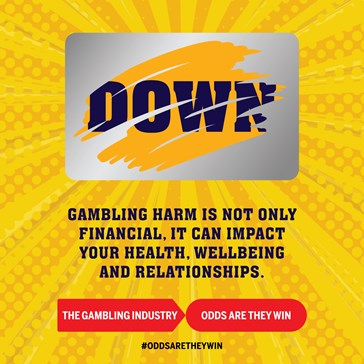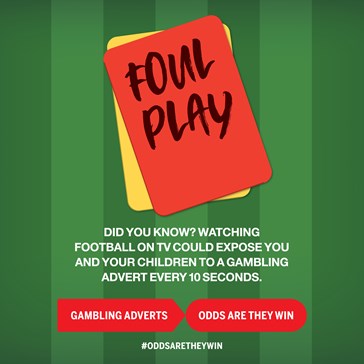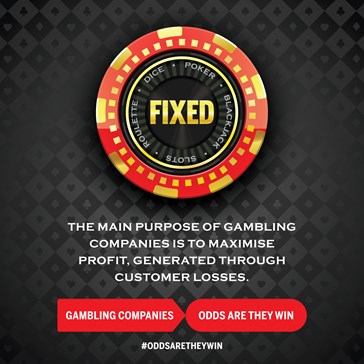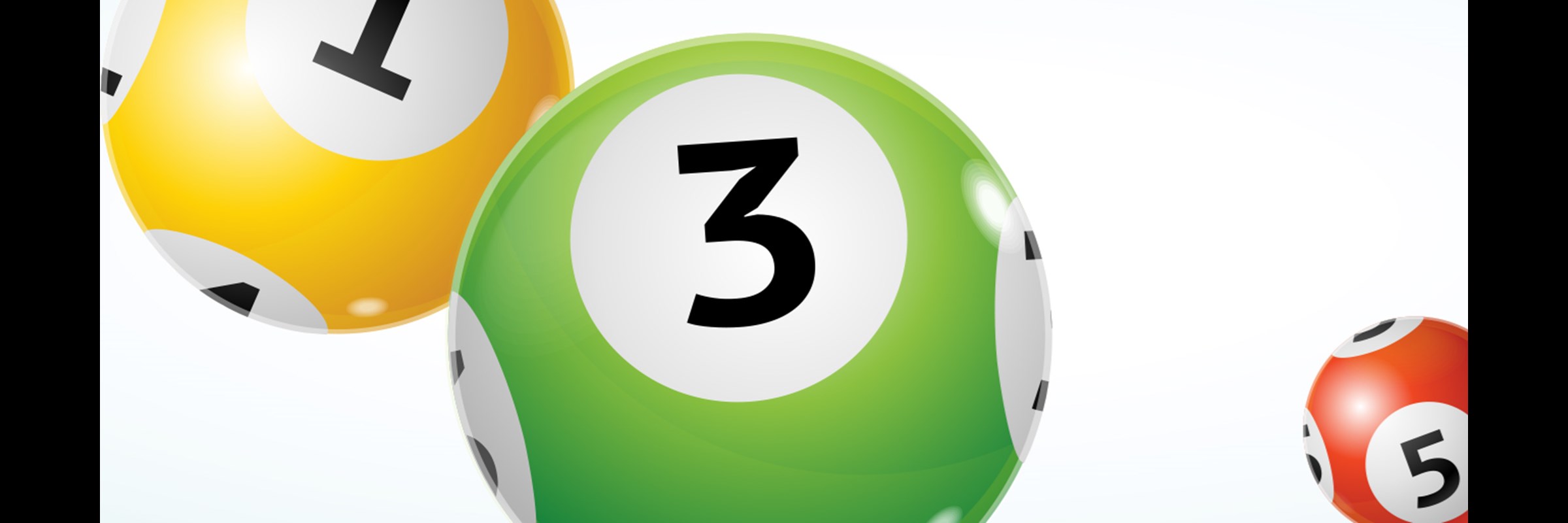Language guide
In partnership with colleagues across the North of England, we have created a gambling harms language guide.
The guide provides suggestions around language choice, and explains how stigmatising language can be avoided.
You can download the pdf, or you can view it on Issuu. Please check back occasionally for the most up-to-date version of the guide.
Odds Are: They Win
About the campaign
Odds Are: They Win is an anti-gambling harms campaign, not an anti-gambling campaign. The purpose of this campaign is to raise awareness of the harms linked to gambling. We want to highlight some of the tactics used by the gambling industry and to make people aware of the risks they face when they gamble.
Our first public campaign
In November 2022 we launched the Odds Are: They Win campaign ahead of the Football World Cup. The campaign ran until February 2023 and achieved a lot. To find out more about the campaign results read the campaign summary report.
If you would like to meet with the team to discuss this and receive the full report please email harm.reduction@greatermanchester-ca.gov.uk.
Why did we do the campaign?
Our aim was firstly to make people more aware of the risk they face when gambling.
With Odds Are: They Win we are moving beyond the narrative of ‘responsible’ gambling and individual ownership, shifting the focus to the fact that whatever the gambling product, whoever the gambling operator and whichever way you look at it, the Odds Are: They Win.
We want to encourage people to share the campaign messages, reflect on them and have open conversations about their experiences of gambling.
What are gambling harms and why do they matter?
Gambling harms are the harms a person can experience as a result of gambling. Harms are not just financial. It can impact your health and wellbeing and relationships with friends and family.
The consequence of this for residents of Greater Manchester is that one in 15 people experience harms related to gambling. We are sure this number is an underestimate. Learn more about understanding gambling related harms.
Gambling consists of a wide range of products and formats. Any level of exposure to gambling carries a risk of harm, but some products are more harmful than others. Using more risky or harmful products does not equate to higher potential reward for customers.
The statistics below represent the risks of experiencing harm as a result of gambling for people who participate in different activities.
Bingo
- In person = 1 in 20
- Online = 1 in 5
Casino games
- Table games (e.g. poker, blackjack, roulette) in person = 1 in 8
- Online (inc. poker, instant win and roulette) = 1 in 5
Instant win and electronic games
- Scratchcards = 1 in 26
- Fruit or slot machines = 1 in 8
- Electronic gaming machines (also known as fixed odds betting terminals) = 1 in 4
Sports betting
- Horse racing (in person, by phone or at event) = 1 in 15
- Dog racing (in person, by phone or at event) = 1 in 6
- Sports events (in person, by phone or at event) = 1 in 8
- Online betting with a bookmaker (all sports and events) = 1 in 11
- Online betting exchanges = 1 in 6
Other
- Private betting with friends and family = 1 in 11
- Betting on ‘other events’ (in person, by phone or at event) = 1 in 4
Gambling products are often designed to build habits with the purpose of keeping customers playing for longer and spending more money. The below features are common in gambling products which are most associated with harms:
- Fast speed and continuity of play, where gaps between bets, stakes or spins are short with repeated, impulsive activity encouraged.
- Micro- and in-play betting, for example betting on small elements of a game which have little bearing on the overall result (e.g. number of yellow cards) or placing more than one bet on the same outcome (e.g. repeating an accumulator when one ‘leg’ loses)
- Using lights, colours and sounds to distort reality and portray losses as ‘near misses’ or wins – many games deliberately look childlike to disguise that they are gambling
- Immersive features, such as not including a running tally of overall wins and losses or removing the ‘clock’ feature to check the time
- Limited interaction or connection with other people ‘in real life’ – although adverts often depict gambling as a social activity, online gambling rarely features this level of interaction
If an offer looks too good to be true, it usually is.
Free bets and spins are used to entice customers towards more profitable (and harmful) products and to keep customers playing for longer, with some offers only available following a loss. Free offers can create that ‘itch’ to return to the game, but this time with your own money.
Free spin offers are not usually as straightforward as they seem. The terms and conditions of offers usually require customers to spin multiple times before being able to withdraw any winnings. In some cases ‘winnings’ need to be recycled 20 to 30 times before any withdrawal can be made.
Free bets are a useful tool to entice people to spend more money when gambling. Free bets can disguise losses as wins. For example, if you spend a £30 free bet and the overall winnings are £10, it appears you have won £10, but really you have lost £20 from the original stake (although this hasn’t cost to the customer).
There seem to be more and more adverts for gambling products these days, as well as marketing emails for people with a gambling account.
Over 1 in 2 people we surveyed say they see gambling adverts every day.
Some day-time television programmes have been sponsored by bingo companies, radio adverts are played during the morning school-run and gambling logos can be shown every 10 seconds during televised football matches.
Adverts can be highly influential, particularly for children and young people who report viewing gambling as an ordinary part of watching sport and are more likely to gamble having seen gambling adverts.
Find out about Against The Odds, a Greater Manchester campaign to relegate gambling sponsorship to history.
Gambling is often a hidden issue, but in Greater Manchester we’re lifting the lid on the harm it creates and talking more openly about gambling.
Talking about gambling may help you, or someone close to you, be open in sharing their experiences of gambling and the harm that can be caused.
Any level of exposure to gambling carries a risk of harm and anyone can be affected. There are steps that you can take to limit exposure to gambling products and marketing, such as setting spending limits across all platforms and blocking marketing material, but these will not reduce the risk altogether. Find out more about gambling blocks and limits.
If you think you, or someone you know, would benefit from professional advice and support, free and confidential help is available. Find out about gambling treatment and support in Greater Manchester.
How can I find out more?
Download the original toolkit for Odds Are: They Win.
If you would like to chat to us about the campaign, please email harm.reduction@greatermanchester-ca.gov.uk.
Follow Odds Are: They Win on twitter
Follow Odds Are: They Win on Facebook
Here are some examples of adverts you may have seen across Greater Manchester during the campaign.






